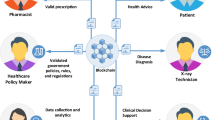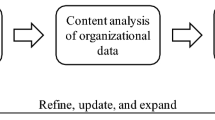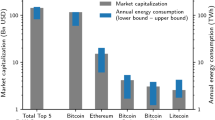Abstract
The integration of blockchain technology with the internet of medical things (IoMT) offers numerous benefits in healthcare data management services. But such system faces storage bottleneck due to the onset of huge volume of medical data through electronic health record. Increased storage and intensive data management protocols escalate the carbon emission by the IoMT system. Traffic adaptive elastic storage and scalable mining prove to be advantageous for the IoMT in terms of efficient storage and low latency. However, the carbon footprint of the adaptive system is yet to be proved. Carbon footprint has become an important quality factor to measure the efficiency of the software systems. In this paper, we propose an efficient technique to measure the carbon footprint of the IoMT system. The assessment framework is modularized to accommodate different IoMT architectures with specific application modules. The proposed system is tested with three different architectures of IoMT applications with varied scale system complexity. The obtained carbon footprint of the systems conforms the logical chronology of the data processing architecture and rightly identifies the most carbon efficient framework. The proposed framework substantiates the inference with data obtained from rigorous experiments.










Similar content being viewed by others
Availability of data and materials
Data will be made available on request.
References
Karmakar A, Ghosh P, Banerjee PS, De D, Pande A (2023) MediChain: medical data fusion using blockchain integrated elastic storage. Multimed Tools Appl. https://doi.org/10.1007/s11042-023-16064-8
Ghubaish A, Salman T, Zolanvari M, Unal D, Al-Ali A, Jain R (2021) Recent advances in the internet-of-medical-things (IoMT) systems security. IEEE Internet Things J 8(11):8707–8718. https://doi.org/10.1109/jiot.2020.3045653
Dwivedi R, Mehrotra D, Chandra S (2022) Potential of internet of medical things (IoMT) applications in building a smart healthcare system: a systematic review. J Oral Biol Craniofacial Res 12(2):302–318. https://doi.org/10.1016/j.jobcr.2021.11.010
Manickam P, Mariappan SA, Murugesan SM, Hansda S, Kaushik A, Shinde R, Thipperudraswamy SP (2022) Artificial intelligence (AI) and internet of medical things (IoMT) assisted biomedical systems for intelligent healthcare. Biosensors 12(8):562. https://doi.org/10.3390/bios12080562
Al-Turjman F, Nawaz MH, Ulusar UD (2020) January). intelligence in the internet of medical things era: a systematic review of current and future trends. Comput Commun 150:644–660. https://doi.org/10.1016/j.comcom.2019.12.030
Li P, Huang X, Pan M, Yu R (2021) FedGreen: federated learning with fine-grained gradient compression for green mobile edge computing. In: 2021 IEEE Global Communications Conference (GLOBECOM). https://doi.org/10.1109/globecom46510.2021.9685582
Dodge J, Prewitt T, Tachet des Combes R, Odmark E, Schwartz R, Strubell E, Luccioni AS, Smith NA, DeCario N, Buchanan W (2022) Measuring the Carbon Intensity of AI in Cloud Instances. In: 2022 ACM Conference on Fairness, Accountability, and Transparency. https://doi.org/10.1145/3531146.3533234
Laplante, P., & Voas, J. (2023, May). “Frameworking” Carbon-Aware Computing Research. Computer, 56(5), 105–108. https://doi.org/10.1109/mc.2023.3240482
Schmidt, A. (2023, July 9). carbond. Zenodo. 10.5281/zenodo.8063846
Onat NC, Kucukvar M (2020) Carbon footprint of construction industry: a global review and supply chain analysis. Renew Sustain Energy Rev 124:109783. https://doi.org/10.1016/j.rser.2020.109783
Whig P, Velu A, Bhatia AB (2022) Protect Nature and Reduce the Carbon Footprint With an Application of Blockchain for IIoT. Demystify Federated Learn Blockchain Indust Intern Things. https://doi.org/10.4018/978-1-6684-3733-9.ch007
Venčkauskas A, Morkevicius N, Jukavičius V, Damaševičius R, Toldinas J, Grigaliūnas A (2019) An edge-fog secure self-authenticable data transfer protocol. Sensors 19(16):3612. https://doi.org/10.3390/s19163612
Lannelongue L, Grealey J, Inouye M (2021) Green algorithms: quantifying the carbon footprint of computation. Adv Sci 8(12):2100707. https://doi.org/10.1002/advs.202100707
Grid Electricity Conversion Factors Publications (2022) International Electricity Factors. Retrieved July 24, 2023, from https://www.carbonfootprint.com/international_electricity_factors.html
UNO WiFi Rev2 | Arduino Documentation. (n.d.). UNO WiFi Rev2 | Arduino Documentation. https://docs.arduino.cc/hardware/uno-wifi-rev2
Intel® Xeon® Processor 2.40 GHz, 512K Cache, 533 MHz FSB Product Specifications. (n.d.). Intel Xeon Processor 2.40 GHz 512K Cache 533 MHz FSB Product Specifications. https://www.intel.com/content/www/us/en/products/sku/27270/intel-xeon-processor-2-40-ghz-512k-cache-533-mhz-fsb.html
3rd Generation Intel® Xeon® Scalable Processors Product Specifications. (n.d.). 3rd Generation Intel® Xeon® Scalable Processors Product Specifications. https://www.intel.com/content/www/us/en/products/sku/series/204098/3rd-generation-intel-xeon-scalable-processors.html
DDR4 | JEDEC. (2020, November 1). DDR4 | JEDEC. https://www.jedec.org/category/keywords/ddr4
General Purpose SSD volumes - Amazon Elastic Compute Cloud. (n.d.). General Purpose SSD Volumes - Amazon Elastic Compute Cloud. https://docs.aws.amazon.com/AWSEC2/latest/UserGuide/general-purpose.html#EBSVolumeTypes_gp2
Yu X, Hu Y, Zhou D, Wang Q, Sang X, Huang K (2023) Carbon emission reduction analysis for cloud computing industry: can carbon emissions trading and technology innovation help? Energy Econ 125:106804. https://doi.org/10.1016/j.eneco.2023.106804
Koonin LM, Hoots B, Tsang CA, Leroy Z, Farris K, Jolly T, Antall P, McCabe BK, Zelis CBR, Tong I, Harris AM (2020) Trends in the use of telehealth during the emergence of the COVID-19 pandemic — United States January–March 2020. Morbid Mortali Weekly Report Centers Dis Control Preven. https://doi.org/10.15585/mmwr.mm6943a3
Funding
Not applicable.
Author information
Authors and Affiliations
Contributions
PG and AM performed conceptualization, methodology, simulation, investigation, formal analysis and writing—original draft. PSB and DD performed conceptualization, visualization, supervision, validation. All authors reviewed the manuscript.
Corresponding author
Ethics declarations
Conflict of interests
The authors declare that they have no known competing financial interests or personal relationships that could have appeared to influence the work reported in this paper.
Ethical approval
Not applicable.
Additional information
Publisher's Note
Springer Nature remains neutral with regard to jurisdictional claims in published maps and institutional affiliations.
Rights and permissions
Springer Nature or its licensor (e.g. a society or other partner) holds exclusive rights to this article under a publishing agreement with the author(s) or other rightsholder(s); author self-archiving of the accepted manuscript version of this article is solely governed by the terms of such publishing agreement and applicable law.
About this article
Cite this article
Ghosh, P., Mazumder, A., Banerjee, P.S. et al. CARE: carbon-aware computing for blockchain-enabled internet of medical things. Innovations Syst Softw Eng (2024). https://doi.org/10.1007/s11334-023-00549-8
Received:
Accepted:
Published:
DOI: https://doi.org/10.1007/s11334-023-00549-8




